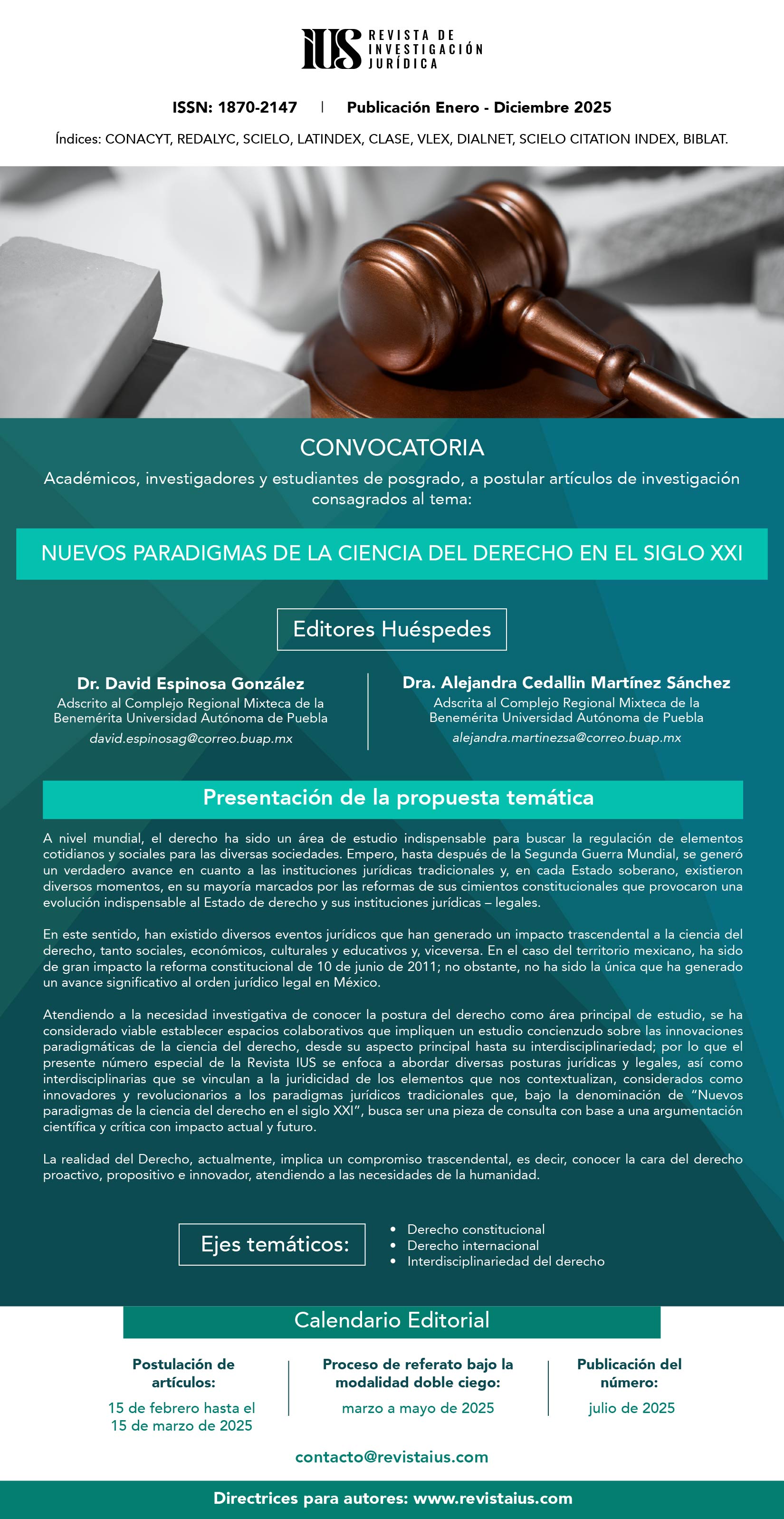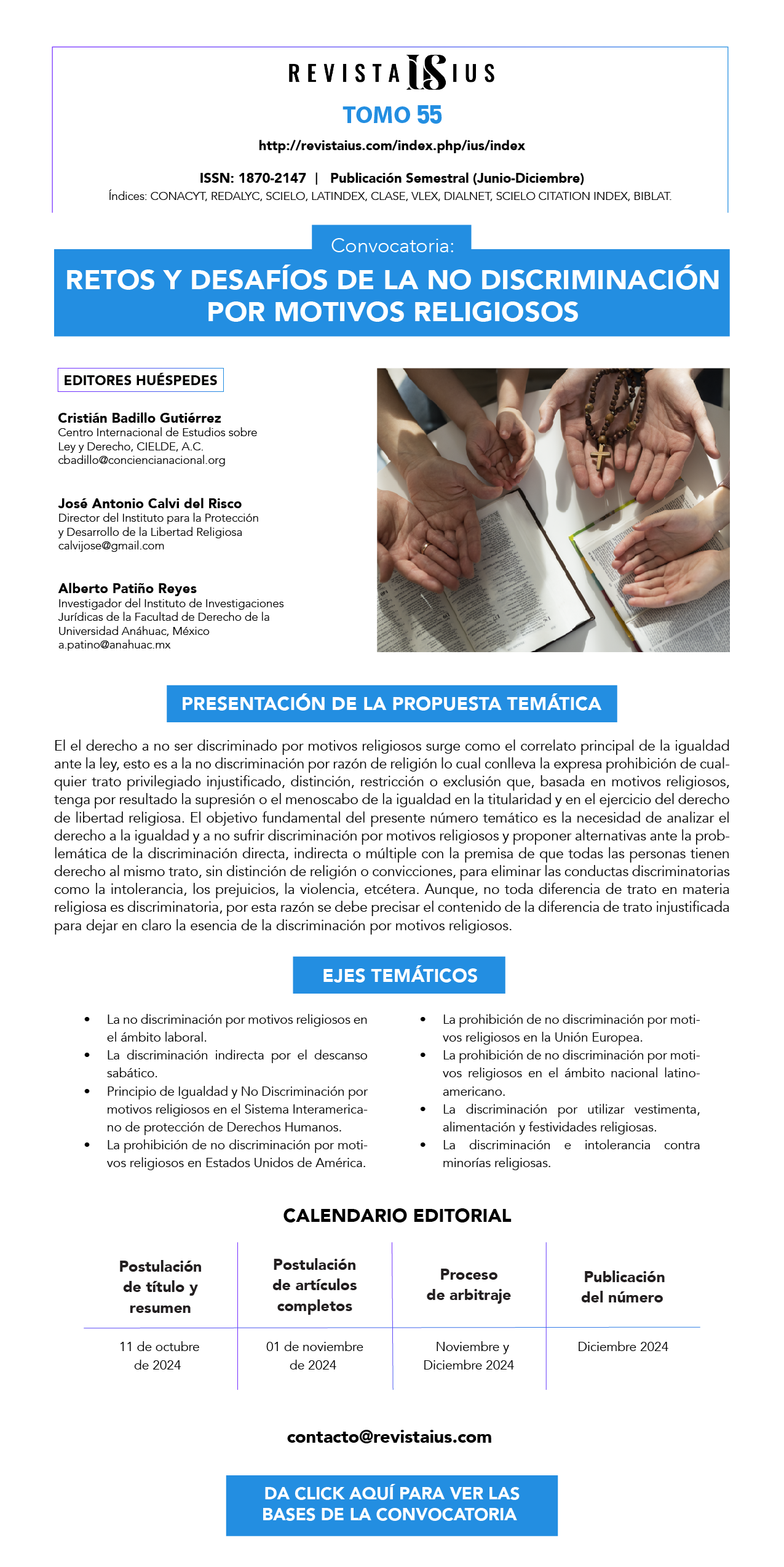Childhood and native peoples of Puebla. The challenges to consolidate the full exercise of their human rights
DOI:
https://doi.org/10.35487/rius.v17i52.2023.929Abstract
Los pueblos originarios o indígenas pertenecen a las minorías. Tienen el objetivo de preservar, desarrollar y transmitir su cultura, territorios ancestrales e identidad étnica a nuevas generaciones para proseguir con sus prácticas culturales, instituciones sociales y sistemas legales propios1. Enfrentan pobreza y marginación, causas de la doble vulnerabilidad de la niñez indígena (NI), objeto de estudio de esta investigación que mues- tra sus condiciones socioeconómicas en el estado de Puebla como principal obstáculo que limita el ejercicio pleno de sus Derechos Humanos (DH), lo que incide en el debilitamiento de su identidad cultural, hipótesis de este trabajo. Se recurrió al análisis de datos socioeco- nómicos, la revisión jurídica y a información obtenida de testimonios de 18 padres y madres indígenas entre- vistados en sus comunidades de origen mediante un cuestionario semiestructurado. Los hallazgos revelan el problema de carácter estructural arrastrado durante generaciones, mientras la NI sufre las consecuencias y el debilitamiento de sus identidades culturales.
Downloads
Downloads
Published
Issue
Section
License

This work is licensed under a Creative Commons Attribution-NonCommercial-ShareAlike 4.0 International License.
Revista IUS, published by the Legal Sciences Institute of Puebla A.C., is distributed under the Creative Commons Attribution-NonCommercial 4.0 International (CC BY-NC 4.0) license.
We authorize collaborators to upload a copy of their published work on their personal websites or any Open Access repository, provided that Revista IUS is specifically cited as the original source, indicating the year and issue of the respective example and adding the link to the webpage on which this publication can be freely consulted in toto and without charge: http://www.revistaius.com
Readers are free to:
Share, copy and redistribute the material via any medium or format.
The licensor cannot revoke these freedoms as long as you follow the license terms.
Under the following terms:
Attribution: You must give appropriate credit, provide a link to the license, and indicate if changes were made.
You may do so in any reasonable manner, but not in any way that suggests the licensor endorses you or your use.
NonCommercial – You may not use the material for commercial purposes.
If you remix, transform or build upon the licensed material, its distribution is not permitted.
Charges for managing articles: Revista IUS will not charge for receiving, processing or publishing articles (Article Processing Charge, or APC) submitted by authors.





